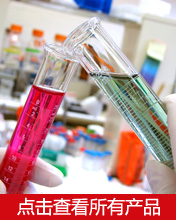
YINGKOU SANZHENG ORGANIC CHEMICAL CO., LTD. LIAONING CHINA
Address: No. 51, Xinxinli, Daqing Road, Zhanqian District, Yingkou City, Liaoning, China電話:0417-3638868
Fax: 0417-3638868
Email: ykszgs@sohu.com
Zip code: 115001
URL::m.jingshuiqi111.com
Synthetic ammonia manufacturers tell you the composition of raw materials: Ammonia is one of the important inorganic chemical products and occupies an important position in the national economy. About 80% of ammonia is used to produce chemical fertilizers and 20% is the raw material for other chemical products. Ammonia is mainly used to make nitrogenous fertilizers and compound fertilizers, such as urea, ammonium nitrate, ammonium phosphate, ammonium chloride and various nitrogen-containing compound fertilizers, all of which use ammonia as raw material. Ammonia is used as an industrial raw material and ammoniated feed, and its consumption accounts for about 1/2 of the world's output. [1]
Nitric acid, various nitrogen-containing inorganic salts and organic intermediates, sulfa drugs, polyurethane, polyamide fibers and nitrile rubber, etc. all need to be directly made of ammonia.
Liquid ammonia is often used as a refrigerant, and part of the commercial ammonia in storage and transportation is transported from the manufacturing plant to other places in liquid form.
In addition, in order to ensure the balance of supply and demand between the synthetic ammonia and ammonia processing workshops in the manufacturing plant, and to prevent production shutdown due to short-term accidents, a liquid ammonia storage must be set up. Liquid ammonia storage has three types: non-frozen, semi-frozen, and full-frozen depending on the capacity. The transportation methods of liquid ammonia include sea transportation, barge transportation, pipeline transportation, tanker transportation, and truck transportation.
1 Heavy oil to make ammonia. Heavy oil includes the residual oil obtained from various deep processing. Partial oxidation method can be used to prepare synthetic ammonia feed gas. The production process is simpler than the natural gas steam reforming method, but an air separation device is required. The oxygen produced by the air separation unit is used for heavy oil gasification. In addition to nitrogen as the raw material for ammonia synthesis, liquid nitrogen is also used as a detergent for removing carbon monoxide, methane and argon.
2 Coal (coke) to make ammonia. With the development of petrochemical industry and natural gas chemical industry, the method of producing ammonia from coal (coke) as a raw material is rarely used in the world. China's energy structure has the characteristics of more coal and less oil and less gas. Coal has become the main synthetic ammonia raw material, and the natural gas ammonia process is strictly restricted.
3 Natural gas to ammonia. The natural gas is firstly desulfurized, then undergoes secondary conversion, and then goes through the processes of carbon monoxide conversion and carbon dioxide removal. The resulting nitrogen-hydrogen mixture contains about 0.10.3 volume of carbon monoxide and carbon dioxide). After being removed by methanation, The purified gas with a hydrogen-to-nitrogen molar ratio of 3 is obtained and compressed by a compressor to enter the ammonia synthesis loop to obtain product ammonia. The synthetic ammonia production process using naphtha as raw material is similar to this process.
